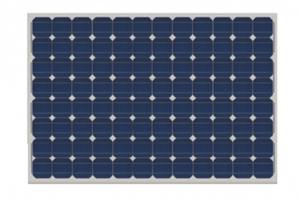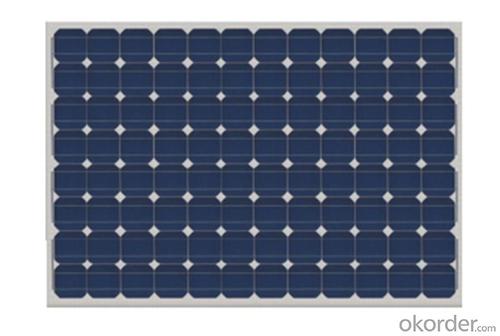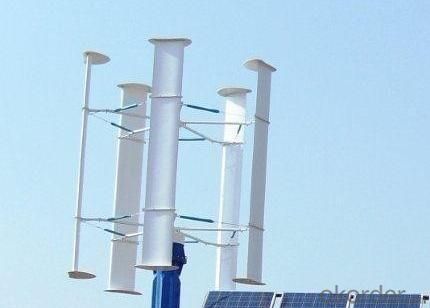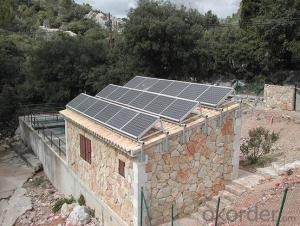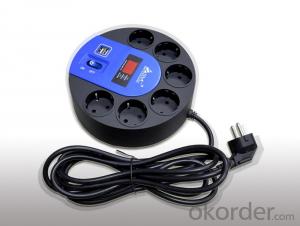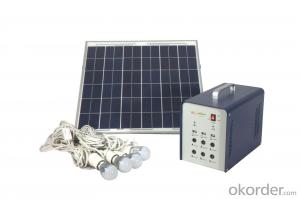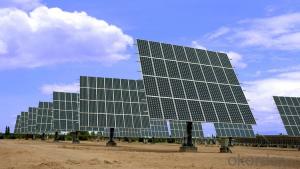Solar Energy Systems USA Wind-PV (Diesel) Hybrid Power System
- Loading Port:
- Nanjing Port
- Payment Terms:
- TT or LC
- Min Order Qty:
- 1 unit unit
- Supply Capability:
- 500 units per month unit/month
OKorder Service Pledge
OKorder Financial Service
You Might Also Like
Introduction of Wind-PV Hybrid Power System
Wind-PV (Diesel) Hybrid Power System consists of wind generator,solar module,diesel engine battery, controller and inverter etc. The system hybrids wind and solar energy. Diesel engine is used as an backup power, which improves the reliability of power supply.
Wind-PV (Diesel) Hybrid Power System is our new generation controller for off-grid solar system, such as street light, solar home system or small power station etc.
Wind-PV (Diesel) Hybrid Power System has LCD display, reliable battery charging, full electronic protection, programmable parameters and other features and powerful function.
Our factory is highly recognized by its business partners and clients all over the world and has obtained rapid development under the spirit of win-win .
With Wind-PV (Diesel) Hybrid Power System ,We will carry on the mutual beneficial,innovative and revolutionary trading structure as we did before,create value for our employees,share holders and clients and benefit the whole society in our future development.Please contact us ,if you have interest in Wind-PV (Diesel) Hybrid Power System ,please contact us!
Brief System Working Principle of Wind-PV Hybrid Power System
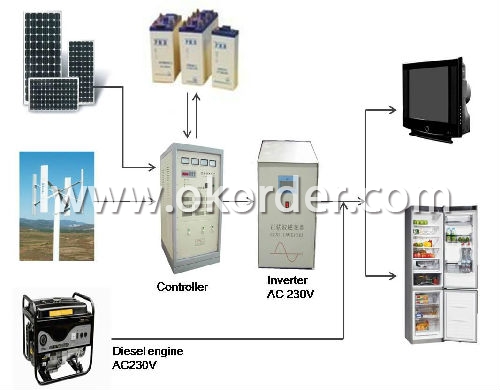
Data Sheet of Wind-PV Hybrid Power System | ||
Name | Specification | Quantity |
Container | 20*8*8.6ft | 1 |
Solar Module | 240W | 30 |
Wind Generator | 500W | 2 |
Battery | 12V120Ah | 20 |
Controller | 120V/60A | 1 |
Inverter | 6000W/AC230V | 1 |
Diesel | 5000W/AC230W | 1 |
Air Conditioner | 1000W | 1 |
Cables | ---- | ---- |
Advantages of Wind-PV Hybrid Power System
--Hybrids wind, solar and diesel power, 24hours continuous power supply.
--Low dependence to climate, can work for several days consecutively under extreme weather conditions
--Low maintain fee, and long life span.
--Sufficient power supply, can afford loads with high power running for a long period.
--Containerized design which is easier to be packaged and transferred to other diggings.
Package of Wind-PV Hybrid Power System
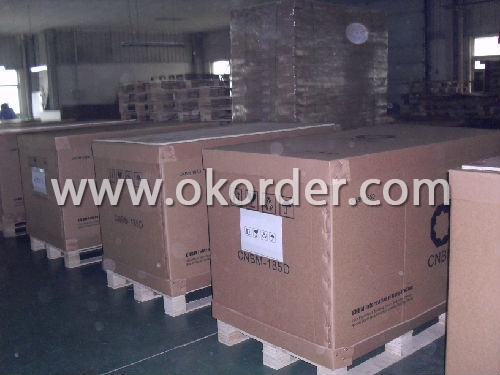
Factory of Wind-PV Hybrid Power System
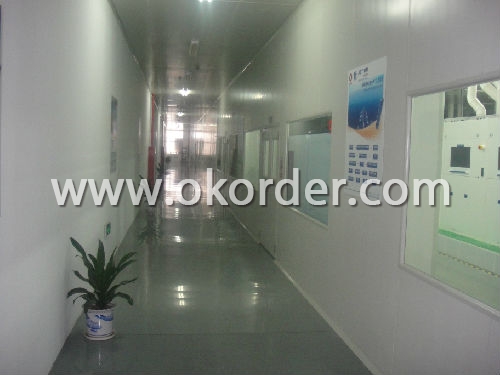
- Q: Can solar energy systems be installed on multi-story buildings?
- Yes, solar energy systems can be installed on multi-story buildings. In fact, many multi-story buildings have successfully implemented solar panels on their rooftops or façades to harness solar energy and generate electricity.
- Q: What is the impact of dust storms on solar panels?
- Solar panels can be significantly affected by dust storms. The build-up of dust and debris on the panel surface can block sunlight, resulting in reduced efficiency and electricity generation. Dust particles act as a barrier, preventing sunlight from converting into electricity, leading to decreased power output and overall performance. Moreover, physical damage can also occur during dust storms. The panel surfaces can be scratched or chipped by abrasive particles carried by strong winds, causing long-term degradation and reduced efficiency. Additionally, the accumulation of dust and debris can raise the panel temperature, further decreasing efficiency. To mitigate the impact of dust storms, regular cleaning and maintenance are crucial. Periodic cleaning removes dust and debris, helping to maintain efficiency and maximize electricity generation. Furthermore, installing tilt systems or self-cleaning technologies can effectively prevent or shed off dust accumulation, minimizing the impact of dust storms. In conclusion, dust storms can negatively affect solar panels, reducing efficiency and potentially causing physical damage. However, proper maintenance and cleaning practices can minimize these effects, allowing solar panels to continue generating clean and sustainable energy.
- Q: Are there any risks of electrical surges or voltage fluctuations with solar energy systems?
- Yes, there are potential risks of electrical surges or voltage fluctuations with solar energy systems. These risks can be caused by factors such as lightning strikes, grid disturbances, or faults in the solar panels or inverters. However, modern solar energy systems are equipped with protective measures, such as surge protectors and voltage regulators, to minimize these risks and ensure the safe and efficient operation of the system. Regular maintenance and inspections are also important to identify and address any potential issues that may arise.
- Q: Can solar energy systems be used in powering outdoor signage or billboards?
- Yes, solar energy systems can be used to power outdoor signage or billboards. Solar panels can be installed on the structures and absorb sunlight to generate electricity, which can then be used to power the signage or billboards. This reduces the reliance on traditional energy sources and helps to make outdoor advertising more sustainable.
- Q: Are there any fire safety concerns associated with solar energy systems?
- Yes, there are fire safety concerns associated with solar energy systems. While solar panels themselves do not generally cause fires, issues can arise with the electrical components of the system, such as faulty wiring, improper installation, or inadequate maintenance. Additionally, firefighters may face challenges in fighting fires involving solar panels due to the risk of electrocution and the inability to easily disconnect the system from the electrical grid. Proper installation, regular inspections, and adherence to safety guidelines can help mitigate these concerns.
- Q: Can solar energy systems be used in areas with limited access to healthcare?
- Yes, solar energy systems can definitely be used in areas with limited access to healthcare. In fact, solar energy systems can play a crucial role in improving healthcare services in such areas. Solar energy systems can be used to power medical facilities, including hospitals, clinics, and health centers, ensuring a reliable and uninterrupted supply of electricity. This is particularly important in remote or off-grid locations where access to the power grid is limited or non-existent. By providing a sustainable and independent source of energy, solar systems can help overcome the challenges associated with unreliable or insufficient power supply, which often hinder the provision of healthcare services. Solar energy can be used to power medical equipment, such as diagnostic tools, laboratory machines, and refrigeration units for storing vaccines and medications. This enables healthcare providers to offer essential services, such as diagnostics, treatment, and emergency care, even in areas where conventional power sources are scarce. Solar-powered medical equipment can also be mobile and easily transported, allowing healthcare workers to reach remote areas and provide primary healthcare services to underserved populations. Furthermore, solar energy systems can be utilized to provide lighting in healthcare facilities, particularly in areas where electricity is limited or not available at night. Adequate lighting is crucial for performing medical procedures, conducting surgeries, and delivering babies safely. Solar-powered lighting systems can also contribute to the overall well-being of healthcare workers, allowing them to work in well-lit and comfortable environments. Moreover, solar energy systems can power communication devices, such as phones and radios, enabling healthcare workers to connect with experts and access medical information, even in areas with limited connectivity. This can facilitate telemedicine initiatives, where remote consultations and diagnosis can be conducted by healthcare professionals from afar, further enhancing healthcare access in areas with limited access to healthcare infrastructure. Overall, solar energy systems offer a sustainable and reliable solution for powering healthcare facilities and improving healthcare services in areas with limited access to healthcare. By providing electricity to medical equipment, lighting, and communication devices, solar systems can contribute to better healthcare outcomes, increased efficiency, and improved access to vital medical services in underserved communities.
- Q: What is concentrated solar power (CSP)?
- Concentrated solar power (CSP) is a renewable energy technology that utilizes mirrors or lenses to concentrate sunlight onto a receiver, which converts the solar energy into thermal energy. This thermal energy can then be used to generate electricity or stored for later use. CSP systems are typically large-scale and can provide reliable and clean power, even during periods of low sunlight.
- Q: Can solar energy systems be used for powering industrial processes?
- Yes, solar energy systems can certainly be used for powering industrial processes. Solar power has gained popularity in recent years as a sustainable and renewable energy source. Industrial processes often require a significant amount of energy, and solar power can be harnessed to meet these demands. There are several ways in which solar energy systems can be utilized for industrial processes. One common method is through the installation of solar photovoltaic (PV) panels. These panels convert sunlight directly into electricity, which can then be used to power various industrial machinery and equipment. By integrating solar PV systems into the existing infrastructure, industries can reduce their dependence on traditional fossil fuels and lower their carbon footprint. In addition to generating electricity, solar thermal systems can also be used to power industrial processes. Solar thermal technology uses the sun's heat to produce steam, which can then drive turbines or provide direct heat for industrial applications. This method is particularly useful for industries that require high-temperature processes, such as manufacturing, chemical production, or food processing. Implementing solar energy systems for industrial processes offers numerous benefits. Firstly, it helps to reduce greenhouse gas emissions and combat climate change. Solar power is a clean energy source that releases no harmful pollutants or greenhouse gases during operation. By transitioning to solar energy, industries can contribute to a more sustainable and environmentally friendly future. Moreover, utilizing solar power can help industries save on energy costs in the long run. While the initial investment for installing solar energy systems may be high, the operational costs are significantly lower compared to traditional energy sources. Once the systems are in place, industries can benefit from reduced electricity bills and even generate excess energy that can be sold back to the grid. Lastly, solar energy systems offer a reliable and resilient power source. They can operate even in remote areas or during power outages, ensuring uninterrupted production processes. Additionally, solar panels have a long lifespan and require minimal maintenance, making them a viable long-term solution for industrial power needs. In conclusion, solar energy systems can indeed be used for powering industrial processes. With the advancements in solar technology and the increasing focus on sustainability, more and more industries are embracing solar power to meet their energy demands. By harnessing the sun's energy, industries can reduce their environmental impact, save on energy costs, and ensure a reliable and resilient power supply for their industrial processes.
- Q: Are there any financing options available for solar energy systems?
- Yes, there are several financing options available for solar energy systems. These options include solar loans, solar leases, power purchase agreements (PPAs), and government incentives such as tax credits and grants. These financing options help make solar energy more accessible and affordable for homeowners and businesses.
- Q: Can solar energy systems be used in areas with limited access to solar energy research facilities?
- Yes, solar energy systems can be used in areas with limited access to solar energy research facilities. Solar energy systems primarily rely on the availability of sunlight, which is a widely accessible resource. While access to research facilities may provide additional knowledge and expertise, the basic principles of solar energy can be understood and implemented even without direct access to such facilities. Additionally, advancements in technology and the availability of online resources have made it easier for individuals and communities to learn about and install solar energy systems, regardless of their proximity to research facilities.
Send your message to us
Solar Energy Systems USA Wind-PV (Diesel) Hybrid Power System
- Loading Port:
- Nanjing Port
- Payment Terms:
- TT or LC
- Min Order Qty:
- 1 unit unit
- Supply Capability:
- 500 units per month unit/month
OKorder Service Pledge
OKorder Financial Service
Similar products
Hot products
Hot Searches
Related keywords
